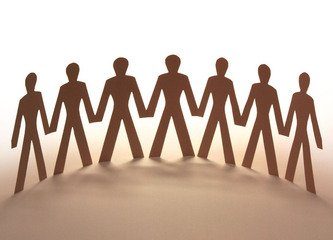We are truly all leaves on the same tree, and we must act accordingly.
In 2021, the global pandemic shines a searing light on our human interconnectedness. This highly volatile and contagious virus has become the acid test for global cooperation. Vulnerability to this disease is shared across the planet by all populations, age groups, economic and social classes, national sovereignties, education levels, political and religious proclivities, races, ethnicities, genders and more.
Beyond vaccines, the cure for this universally shared bug is a universal inoculation effort. The elimination of this virus also challenges us to create a global organization dedicated to staving off all future such emergencies. Building strength in numbers, so to speak. We are truly all leaves on the same tree, and we must act accordingly. Therein lies the real cure!
The classic tale of the ‘Good Samaritan’ illustrates how the enlightened virtues of empathy and compassion serve to drive mutually beneficial relationships.
The story of a man who risks himself on a dangerous road to help another poor, unfortunate traveler, left beaten and robbed, is not a story of punishment or reward, sainthood or piety. Rather, it is a parable about the human capacity to develop and demonstrate the three pillars of wisdom- rational intelligence, emotional intelligence, and spiritual intelligence.
What’s the difference between the person who stopped to help and all the others who passed the victim by? It is the framing of the questions they asked themselves. To the selfish, the important question is, “If I stop to help this man, what will happen to me?” To the empathetic and selfless, the important question is, “If I don’t stop to help this man, what will happen to him?”
The second question—and its answer— is evidenced by all three pillars of wisdom.
Perhaps then, there is far more benefit in framing the question about vaccination not around what will happen to me if I get it, but rather, what will happen to others if I do not get vaccinated. Especially those still unvaccinated and at high risk.
The very way the question about vaccination is framed adds poignancy to the concept that the quality of our lives is not measured in the answers we find, but in the questions we ask.
So, what if we ask the right question?
As with global warming and pollution, COVID-19 requires no passport, visa, or citizenship card to cross borders and influence entire societies. Manmade boundaries and national sovereignties prove to be no inoculation from its effects. As a global people, we face this sickness together; we fight this sickness together, and we finish this sickness together.
Big issues in this way of questioning and acting? Yes.
Global atrocities solvable immediately? Probably not.
But they are solvable and in the case of COVID, the faster we move toward universal inoculation the less the contagion mutates among the unvaccinated and spreads perhaps to all of us, vaccinated or otherwise.
One thing the pandemic has made clear is that workable solutions will involve humans across our planet. Our interdependencies with one another already exist and that interconnectedness begs for more universal morality.
Selflessness is a part of the norms in every society. In that regard, selflessness is a universal virtue. The call for selflessness is what ended world wars and international conflicts. We have done this many times before on a global scale.
Believe it or not, when it comes to vaccination one person can make a global difference- save the world you might rightly say. Is the effect of one person making the right, ethical choice to vaccinate minuscule? It certainly feels that way. Still, saving the world aside, I am reminded of a quote by the famous American cultural anthropologist Margret Mead, “Never doubt that a small group of thoughtful, committed citizens can change the world. Indeed, it is the only thing that ever has.”


